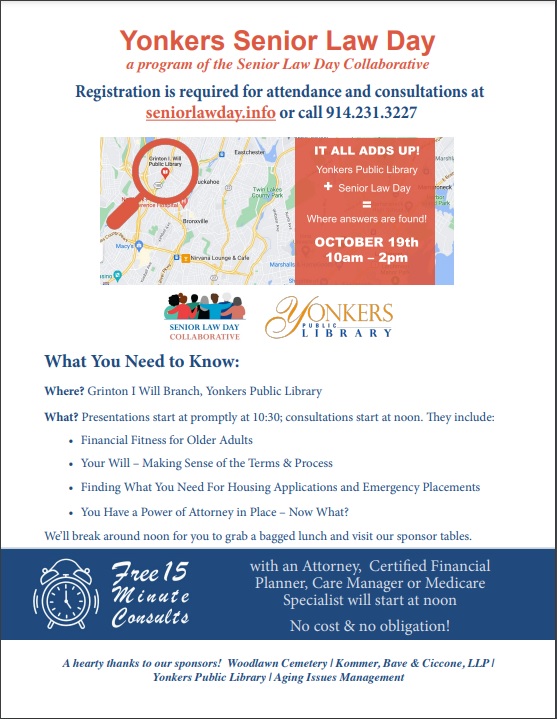

Legal Insight. Trusted Advice.
Recent Successes And News: Month: October 2022
Yonkers Senior Law Day – October 19, 2022
A program of the Senior Law Day Collaborative
On Wednesday, October 19th, Yonkers Senior Law Day will be held at the Grinton I. Will Branch of the Yonkers Public Library. Presentations and educational programs will start at 10:30 am. They include:
- Financial Fitness for Older Adults
- Your Will – Making Sense of the Terms & Process
- Finding What You Need For Housing Applications and Emergency Placements
- You Have a Power of Attorney in Place – Now What?
Presentations will break around noon for attendees to grab a bag lunch and visit the sponsor tables. From noon until 2 pm, there will also be free 15 minute consults available with an Attorney, Certified Financial Planner, Care Manager or Medicare Specialist.
Registration is required for attendance and consultations at seniorlawday.info or call 914-231-3227.
This event is sponsored by: Kommer Bave & Ciccone, LLP; Woodlawn Cemetery; Yonkers Public Library; and Aging Issues Management.






